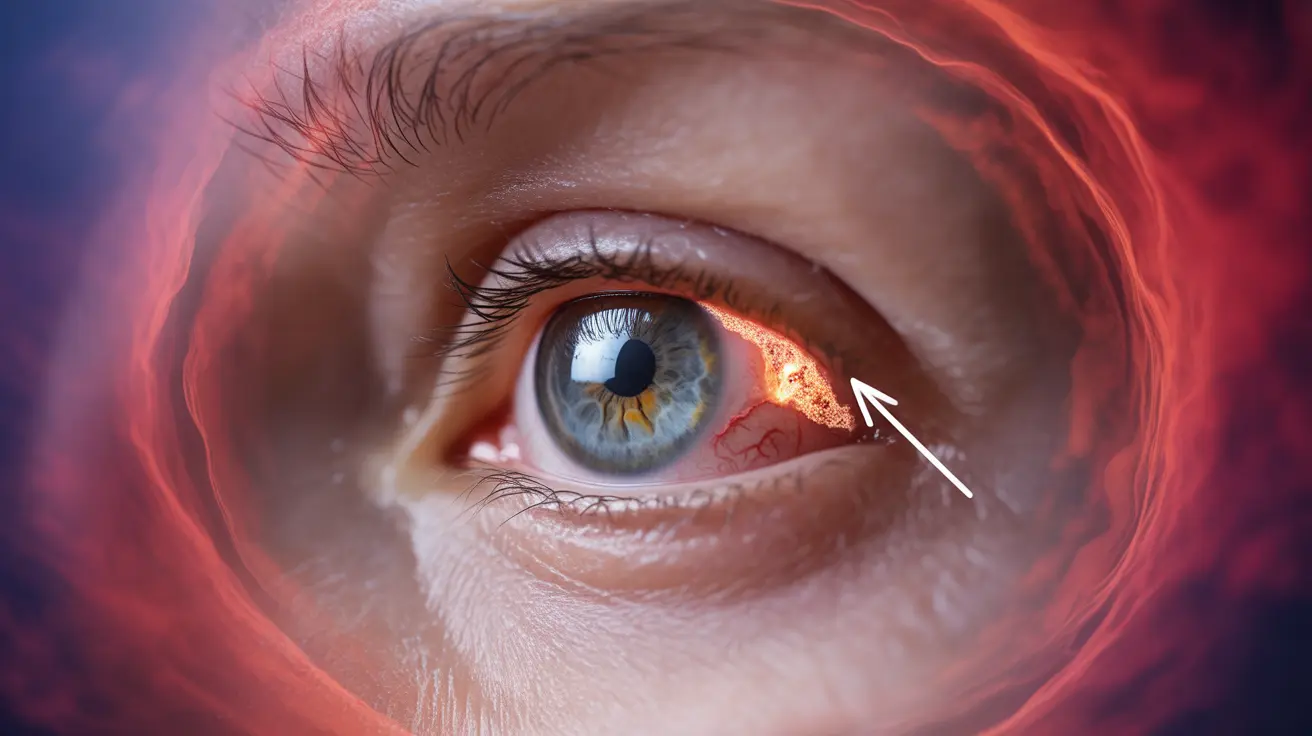If you've experienced burning or irritated eyes during a COVID-19 infection, you're not alone. While respiratory symptoms are more commonly associated with COVID-19, eye-related symptoms, including burning sensations, have been reported by many patients. Understanding the relationship between COVID-19 and eye symptoms can help you better recognize and manage these uncomfortable effects.
In this comprehensive guide, we'll explore the connection between burning eyes and COVID-19, discuss various treatment options, and help you determine when to seek medical attention.
The Link Between COVID-19 and Eye Symptoms
COVID-19 can affect the eyes because the virus can enter through the eye's surface membranes, which contain ACE2 receptors – the same type of receptors the virus uses to enter cells in other parts of the body. This can lead to various eye-related symptoms, including the sensation of burning eyes.
Research suggests that approximately 10-15% of COVID-19 patients may experience some form of eye symptoms during their illness, though the exact prevalence of burning eyes specifically varies among studies.
Common Eye Symptoms Associated with COVID-19
While burning eyes can be concerning, they're just one of several eye-related symptoms that may occur with COVID-19. Other common symptoms include:
- Eye redness or conjunctivitis
- Excessive tearing
- Light sensitivity
- Eye pain or pressure
- Blurred vision
- Itchy eyes
Managing Burning Eyes During COVID-19
At-Home Treatment Options
If you're experiencing burning eyes during a COVID-19 infection, several safe home remedies may help alleviate discomfort:
- Apply clean, cool compresses to closed eyes
- Use artificial tears or lubricating eye drops
- Practice good eye hygiene
- Avoid touching or rubbing your eyes
- Take frequent breaks from screen time
- Maintain proper hydration
Prevention Strategies
To minimize the risk of eye complications during COVID-19:
- Wash hands frequently and thoroughly
- Avoid touching your face and eyes
- Wear protective eyewear when appropriate
- Keep your living space well-ventilated
- Clean and disinfect frequently touched surfaces
When to Seek Medical Attention
While mild eye symptoms often resolve on their own, certain situations warrant immediate medical attention:
- Severe eye pain or pressure
- Significant vision changes
- Persistent eye redness or discharge
- Symptoms that worsen despite home treatment
- Development of light sensitivity or eye inflammation
Frequently Asked Questions
- Can burning eyes be a symptom of COVID-19, and how common is it?
Yes, burning eyes can be a symptom of COVID-19. Studies indicate that approximately 10-15% of COVID-19 patients experience some form of eye symptoms, including burning sensations. However, it's typically not one of the most common symptoms of the infection.
- What other eye symptoms are associated with COVID-19 besides burning eyes?
Other common eye symptoms associated with COVID-19 include conjunctivitis (pink eye), excessive tearing, light sensitivity, eye pain or pressure, blurred vision, and itchy eyes. These symptoms can vary in severity and may occur alone or in combination.
- How can I safely treat burning eyes or eye irritation caused by COVID-19 at home?
Safe home treatments include using artificial tears, applying cool compresses, practicing good eye hygiene, avoiding eye touching, taking screen breaks, and staying hydrated. Always use clean hands and materials when treating your eyes.
- When should I see a doctor for burning eyes during or after a COVID-19 infection?
Seek medical attention if you experience severe eye pain, significant vision changes, persistent redness or discharge, worsening symptoms despite home treatment, or development of serious light sensitivity or inflammation.
- How can I tell if burning eyes are caused by COVID-19 or other conditions like allergies or dry eye?
It can be challenging to distinguish the cause of burning eyes without professional evaluation. However, COVID-related eye symptoms typically occur alongside other COVID-19 symptoms like fever, cough, or loss of taste/smell. Allergy symptoms often include itching and seasonal patterns, while dry eye typically worsens with screen time or environmental factors.




